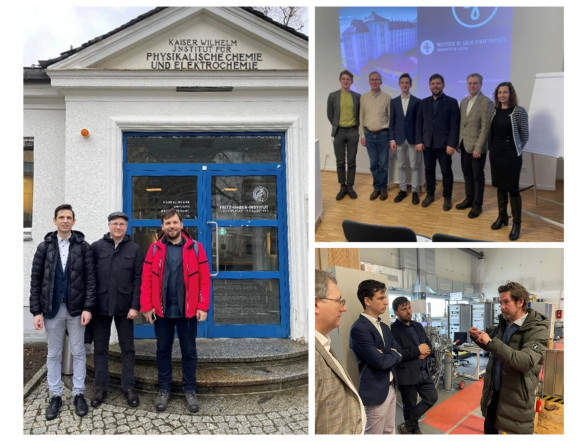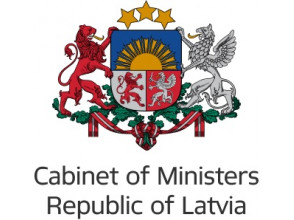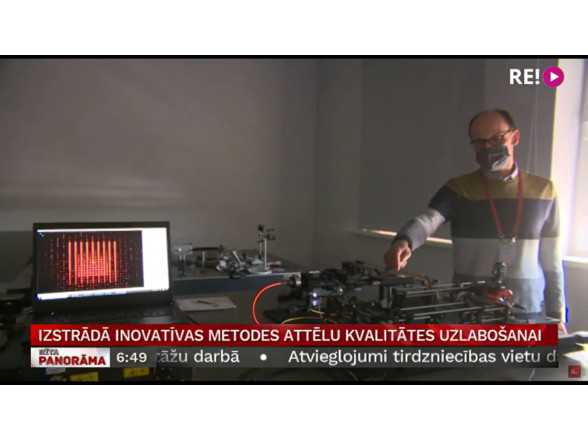Researchers and management staff of the ISSP UL (Director Dr.phys. Andris Anspoks, a leading researcher and head of the Spectroscopy Laboratory, Dr.phys. Anatolijs Šarakovskis, a leading researcher and head of the EXAFS Spectroscopy Laboratory, Dr.phys. Aleksejs Kuzmins, and leading researcher and head of the Laboratory of Materials for Energy Harvesting and Storage Dr.phys. Gints Kucinskis) visited the Fritz Haber Institute of the Max Planck Society to expand their collaboration network.
The researchers met and had a discussion with the leading staff members of the Interface Science Department: Prof. Dr. Beatriz Roldán Cuenya (Deputy Managing Director), research group leaders Dr. Helmut Kuhlenbeck (Thin Films), Dr. Shamil Shaikhutdinov (Structure and Reactivity), Dr. Jānis Timošenko (Operando Hard X-ray Spectroscopy), Dr. See Wee Chee (Liquid Phase Electron Microscopy), and Dr. Sebastian Oener (Interfacial Ionics). The ISSP UL visitors gave a joint talk presenting ISSP UL, its facilities, the scope of research, and selected key results.
Prof. Dr. Beatriz Roldán Cuenya expressed willingness to collaborate in the future by hosting research visits from ISSP UL with a duration starting from 3 months. Fritz Haber Institute could fund part or all such visits. Joint applications for funding could be written if such collaboration turned out to be successful.
Additionally, visitors from ISSP UL obtained a better understanding of the scope of research at Fritz Haber Institute, including studies of catalytic reactions, fuel cell characterization, a study of the structure of materials by laboratory X-ray absorption spectroscopy setup, various other in-situ/operando characterization techniques (e.g., XPS, Raman, FTIR, TEM, SEM), and the principles guiding such research.
The Fritz Haber Institute of the Max Planck Society (FHI) is an international research place where scientists from all over the world investigate the basic principles underlying the chemical conversion of matter and energy at surfaces and interfaces.



